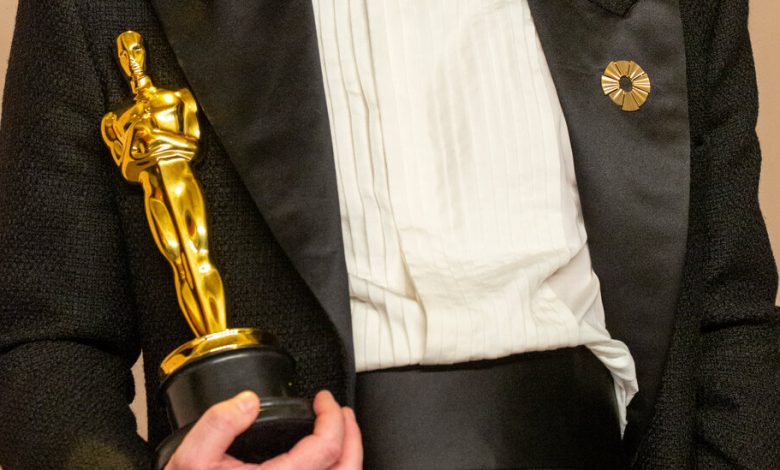Trending at the Oscars, Brooches for Men

War, labor strikes and a thorny political season made scant inroads at the 2024 Academy Awards, where branding trumped protest and jeweled ornaments far outnumbered protest pins. As the most traditional of award shows returned to its roots as a glorified trade affair (ginned up 96 years ago as a way of pacifying above-the-line talent in the wake of the unionizing then gaining a foothold in moviedom), praise was near universal for the return to old Hollywood glamour.
In the early days of the Oscars, studios manufactured that glamour, grooming and refashioning the talent, keeping their images tightly controlled. Actors, of course, long ago stopped being contract players and became independent agents. So no one can blame them for diversifying the revenue streams that flow abundantly from celebrity.
Stars, we know and accept, are now liberated to advertise everything and anything, to don glamorous free clothes for award shows and even, if they like, to turn themselves into beautiful rentable billboard space. So it was notable, if not surprising, to see a sudden proliferation on this year’s male stars wearing baubles more often associated with granny’s jewel box than Hollywood heartthrobs.
Brooches, that is, were everywhere. They were pinned to the lapels of Cillian Murphy, Teo Yoo, Ke Huy Quan, Robert Downey Jr., Tatanka Means, Mark Ruffalo and Jeffrey Wright. They were stylishly fastened to Colman Domingo’s bow tie. They were used functionally, as at their Iron Age inception, to fasten garments. Celts in the pre-Christian era, however, lacked the technology to produce a brooch like the diamond-studded one Simu Liu used to clasp his Fendi jacket.
“Almost every single actor was wearing some kind of jewelry,” Stellene Volandes, the editor in chief of Town & Country, said with approval, “It’s almost gotten to the point where if you were not wearing a lapel pin, you forgot part of your look.”




Clockwise from top left: Colman Domingo, Mark Ruffalo, Jeffrey Wright and Teo Yoo. Credit…Nina Westervelt for The New York Times